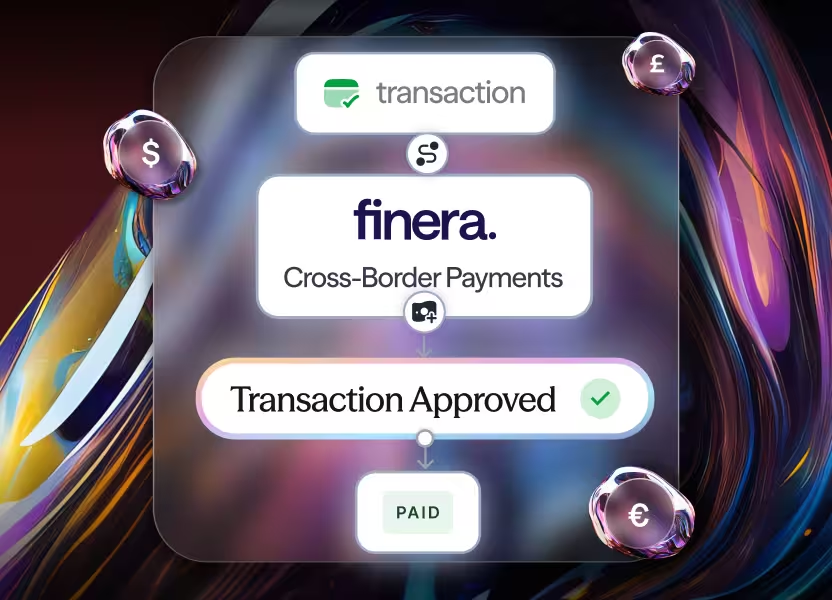Choosing the Right Payment Stack: Orchestrator vs Gateway vs PSP
Gateway, PSP or orchestrator? Learn what your business really needs to optimise and scale payments.

Choosing the right payment stack can make or break your growth strategy. If you are expanding into new markets or optimising performance across regions, your payments setup plays a critical role in how efficiently you operate and how many transactions you convert. With terms like payment gateway, PSP and payment orchestrator often used interchangeably, it’s easy to overlook their differences. But understanding what each does (and doesn’t do) is key to building infrastructure that supports your business today and scales with you tomorrow.
Why Your Payment Stack Matters
Does your business need just a way to take payments, or does it need payments to perform as a strategic asset? For businesses operating across multiple regions or currencies, simple setups often fall short. Without the right stack, you risk higher declines, rigid routing and limited control over costs and performance.
Understanding the Payment Stack Components
Payment Gateway
A payment gateway is the basic software layer connecting your platform to an acquirer. It handles the authorisation of card payments and supports some local methods. While gateways are straightforward to integrate and ideal for small, single-market merchants, they are usually tied to a single processor and lack flexibility in routing, optimisation or redundancy.
Payment Service Provider (PSP)
A Payment Service Provider (PSP) packages gateway, acquiring, fraud tools and merchant account services into one platform. PSPs simplify setup and compliance, making them an attractive choice for SMBs and startups. Yet, they often lock merchants into a single provider’s infrastructure, limiting customisation and performance optimisation as transaction volumes grow.
Payment Orchestrator
A payment orchestrator sits on top of multiple PSPs, gateways and acquirers, acting as a central control layer. Also known as a Payment Orchestration Platform (POP), it facilitates access to various payment providers and methods from one unified API. With built-in smart routing, failover mechanisms, multi-currency settlement and configurable logic, orchestrators offer unrivalled flexibility and scalability.
Comparing the Options: Gateway vs PSP vs Orchestrator
Each layer of the payment stack offers a different balance of simplicity, flexibility and control. A payment gateway is the simplest to integrate, typically serving single-region merchants that only need to connect to one acquiring bank. However, it lacks flexibility, offering little to no routing options, minimal support for multi-currency transactions and no redundancy if something goes wrong.
A PSP goes a step further, bundling gateway functionality with acquiring, fraud tools, and sometimes settlement support. PSPs are ideal for fast-moving businesses looking to launch quickly without navigating multiple contracts or integrations. But they often lock merchants into their ecosystem, limiting custom routing, acquirer flexibility and visibility into performance metrics.
In contrast, a payment orchestrator is built for scale and complexity. It connects to multiple gateways and PSPs, offering smart routing capabilities, real-time failover, multi-currency support and the ability to customise logic by geography, card type or transaction behaviour. Orchestration is especially powerful for global platforms, marketplaces, and fintechs looking to optimise every transaction across cost, approval rate and performance.
Ultimately, the right choice depends on your business model and ambition, but for those operating across borders or at scale, payment orchestration offers the depth and flexibility today’s commerce demands.
What Makes Payment Orchestration a Game-Changer?
Unified Integration, Infinite Flexibility
Integrating with multiple PSPs and acquirers would typically require multiple APIs, contracts and technical teams. Orchestration simplifies this by providing a single endpoint for managing payment providers, currencies and compliance, dramatically reducing time to market and operational complexity.
Smarter Routing with Real-Time Decisions
Smart routing automates transaction routing based on issuer location, card scheme, fee structure, success rates and more. A PaymentsJournal case study noted that orchestrated businesses typically see higher authorisation and lower decline rates due to smarter routing logic.
Built-In Redundancy and Better Uptime
If a primary acquirer experiences downtime or underperforms, smart routing enables instant fallback to another provider within milliseconds. This kind of real-time failover ensures checkout reliability, vital for SaaS subscriptions, marketplaces and high-volume platforms.
Cost and Margin Optimisation
Routing transactions based on cost and performance helps merchants minimise processing fees without sacrificing conversion. Merchants using payment orchestration can reduce costs, especially in multi-acquirer, cross-border setups.
Comprehensive Insights and Reporting
Orchestration platforms provide granular analytics on provider performance, decline reasons, transaction costs and regional success. These insights let businesses fine-tune routing policies and make strategic decisions on acquiring relationships, routing rules and settlement logic.
Real-World Scenarios: Choosing the Right Stack
When should you choose which stack?
- Startup selling in one region? A gateway or PSP may suffice.
- Scaling across borders or adding acquirers? A PSP quickly hits its limit.
- Serving multiple markets, currencies and channels? You likely need orchestration and smart routing to optimise performance and flexibility.
Imagine a travel platform expanding into Europe, Asia-Pacific and Latin America: orchestrated smart routing ensures each transaction uses the best-toned route for the card issuer’s region, currency and scheme, boosting approvals while controlling cost.
A Final Note on Smart Routing vs Payment Routing
All smart routing incorporates payment routing but not all payment routing is smart. Static routing rules often lack real-time intelligence or fallback logic. Smart routing, however, transforms routing from a rule-based path into a performance engine that adapts, learns and scales.
Why Platform Owners Choose Finera
At Finera, we provide modern payment orchestration infrastructure that helps businesses simplify operational complexity, optimise performance and scale across markets with confidence. Our flexible ecosystem enables businesses to connect to multiple acquirers and gateways through a single integration, giving them greater control and agility in how they route payments. With built-in smart routing, businesses can optimise for approval rates, cost, or geography, adapting to customer needs and market conditions in real time.
We also support multi-currency flows, making it easier to serve customers in their local currency while managing global payment operations more efficiently. To help protect revenue, Finera offers robust fraud prevention tools and 24/7 support, ensuring that payment teams can focus on growth, expansion and customer experience without being held back by infrastructure limitations.
Talk to our team today to learn how Finera can help you build smarter payments that scale.
Stay Connected with Us!
Follow us on social media to stay up to date with the latest news, updates, and exclusive insights!




.avif)

